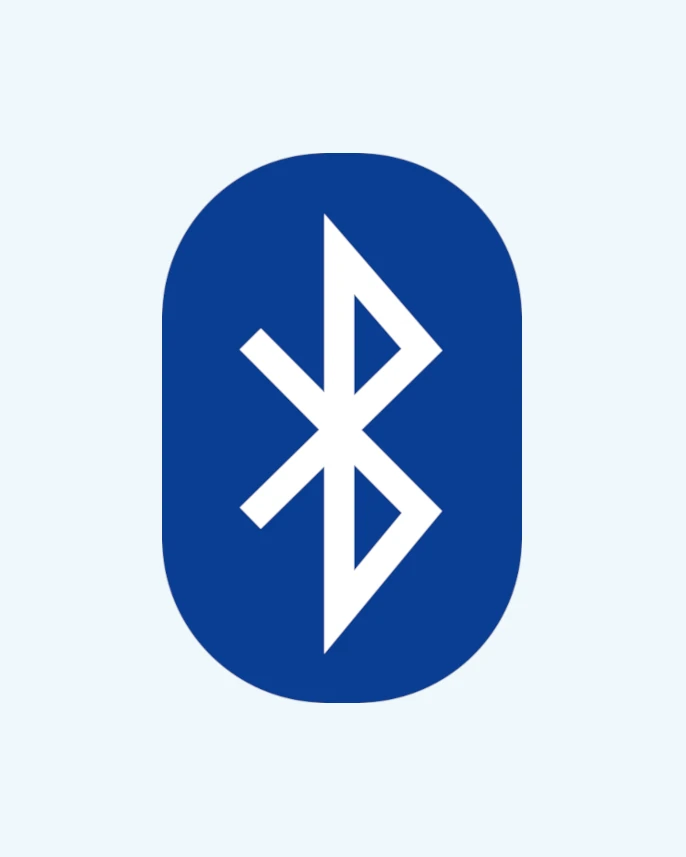Bluetooth is a ubiquitous wireless technology that has revolutionized the way we connect and communicate with our devices. This versatile technology allows seamless data exchange between smartphones, tablets, laptops, headphones, speakers, and numerous other gadgets and peripherals. Developed in the 1990s by Ericsson, Bluetooth has since become a standard feature in most modern devices, enhancing our digital experiences in various ways.
In this article, we will delve into the world of Bluetooth, understanding how it works, its applications in everyday life, and the benefits it offers. From hands-free calling and wireless audio streaming to smart home automation and wearable devices. Moreover, Bluetooth has transformed the way we interact with technology. Let’s explore the wonders of Bluetooth and its impact on our connected world.
Understanding Bluetooth Technology
Bluetooth is a wireless communication technology that enables short-range data transfer between devices. It operates on radio waves within the 2.4 GHz frequency range and uses low-power signals to establish connections. The technology is based on a master-slave architecture. One device (the master) initiates and controls the connection with other devices (the slaves).
Devices equipped with Bluetooth can create Personal Area Networks (PANs). It is allowing seamless communication and data exchange within a limited range, typically up to 10 meters (about 33 feet). These connections are secure and require pairing between devices, which involves exchanging security keys to establish a trusted connection.
Applications of Bluetooth Technology
Bluetooth’s versatility has led to its widespread adoption in various applications across different industries. Let’s explore some of the key applications of Bluetooth technology:
- Wireless Audio Streaming: Bluetooth enables wireless audio streaming between smartphones, tablets, and Bluetooth-enabled speakers or headphones. Users can enjoy their favorite music or podcasts without the hassle of tangled wires.
- Hands-Free Calling: Bluetooth technology allows for hands-free calling in cars, making it safer and more convenient for drivers to take calls while keeping their hands on the wheel and eyes on the road.
- Wearable Devices: Many wearable devices, such as smartwatches and fitness trackers, utilize Bluetooth to sync data with smartphones, enabling users to track their health and fitness metrics seamlessly.
- Home Automation: Bluetooth is widely used in smart home automation systems to connect and control various devices, including smart bulbs, thermostats, locks, and security cameras, from a single app on a smartphone.
- Wireless File Transfer: Bluetooth facilitates quick and easy file transfer between devices, making it convenient to share photos, videos, and documents between smartphones or tablets.
- IoT (Internet of Things) Devices: Bluetooth is a crucial communication technology for IoT devices, allowing them to connect and interact with each other in a smart home or industrial setting.
Benefits of Bluetooth Technology
Bluetooth technology offers a myriad of benefits, making it a popular choice for wireless communication and connectivity. Let’s explore the advantages of Bluetooth:
- Convenience and Mobility: Bluetooth eliminates the need for cables, providing a wireless and clutter-free experience. Users can move around freely while staying connected to their devices, enhancing convenience and mobility.
- Energy Efficiency: Bluetooth utilizes low-power signals, consuming minimal energy compared to other wireless technologies. This energy efficiency is particularly crucial for battery-operated devices, such as wireless earbuds and fitness trackers, as it prolongs battery life.
- Universal Compatibility: Bluetooth is widely adopted and integrated into various devices, ensuring universal compatibility. Users can pair Bluetooth-enabled devices from different manufacturers without compatibility issues.
- Cost-Effective: Implementing Bluetooth technology is cost-effective for device manufacturers, as it requires minimal hardware and incurs lower production costs compared to other wireless communication technologies.
- Secure Connections: Bluetooth technology uses secure encryption methods, making data exchanges between paired devices safe from unauthorized access or interference.
- Seamless Device Pairing: Pairing devices via Bluetooth is relatively simple and straightforward, allowing users to quickly establish connections without the need for complex setup processes.
- Support for Multiple Connections: Bluetooth technology supports multi-point connections, allowing devices to connect to multiple peripherals simultaneously. For example, a smartphone can be paired with wireless headphones while maintaining a connection with a smartwatch.
Future Developments of Bluetooth Technology
As technology continues to evolve, so does Bluetooth. The Bluetooth Special Interest Group (SIG), the organization responsible for overseeing Bluetooth development. It is constantly working on improvements and new features. Some exciting developments on the horizon include:
- Bluetooth Low Energy (BLE): BLE, also known as Bluetooth Smart, is an enhanced version of Bluetooth designed for low-power IoT devices. It enables these devices to operate on coin cell batteries for extended periods, making them ideal for applications like smart home sensors and beacons.
- Bluetooth Mesh Networking: This new feature allows devices to form a mesh network, enabling data to be relayed from one device to another until it reaches its destination. Bluetooth mesh networking is well-suited for large-scale IoT deployments, where devices are spread over a wide area.
- Increased Range and Data Transfer Speeds: Future iterations of Bluetooth are expected to improve range and data transfer speeds, enabling faster and more reliable communication between devices.
- Enhanced Audio Quality: Bluetooth codecs, such as aptX and AAC, have already improved audio quality in wireless headphones and speakers. Further advancements are anticipated to deliver even better audio experiences for users.
- Integration with 5G: As 5G networks become more prevalent, Bluetooth is likely to integrate with 5G technology. Moreover, enabling seamless communication between devices and faster data transfers.
Conclusion
Bluetooth technology has transformed the way we interact with our devices, offering a seamless and convenient wireless experience. From wirelessly streaming music to syncing wearable devices, Bluetooth has become an integral part of modern life. Its energy efficiency, universal compatibility, and secure connections make it a preferred choice for wireless communication.
As Bluetooth continues to evolve and new features are introduced, its applications are likely to expand further. Moreover, enhancing our connected world and driving the Internet of Things (IoT) revolution. Embrace the wonders of Bluetooth, and enjoy the benefits of a wire-free and interconnected lifestyle.
